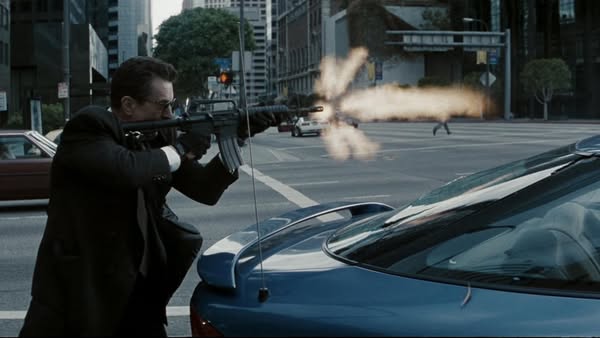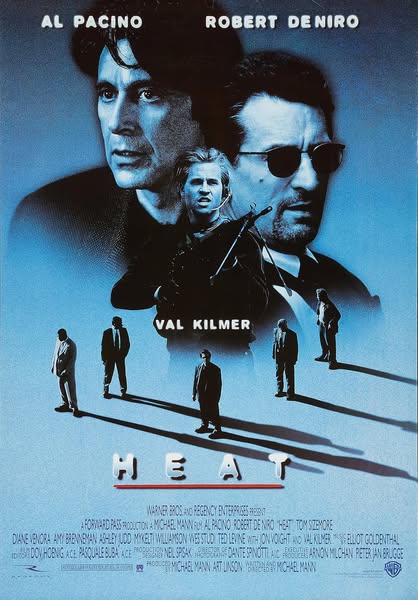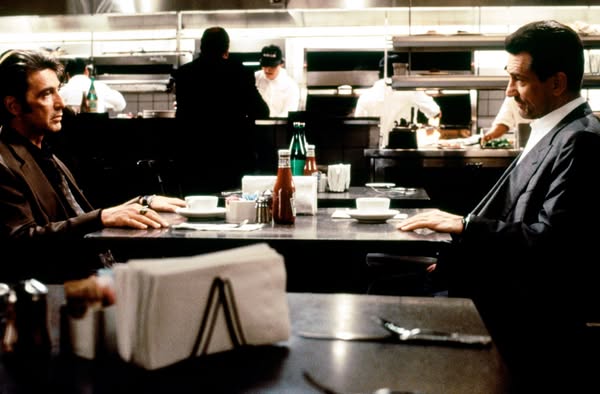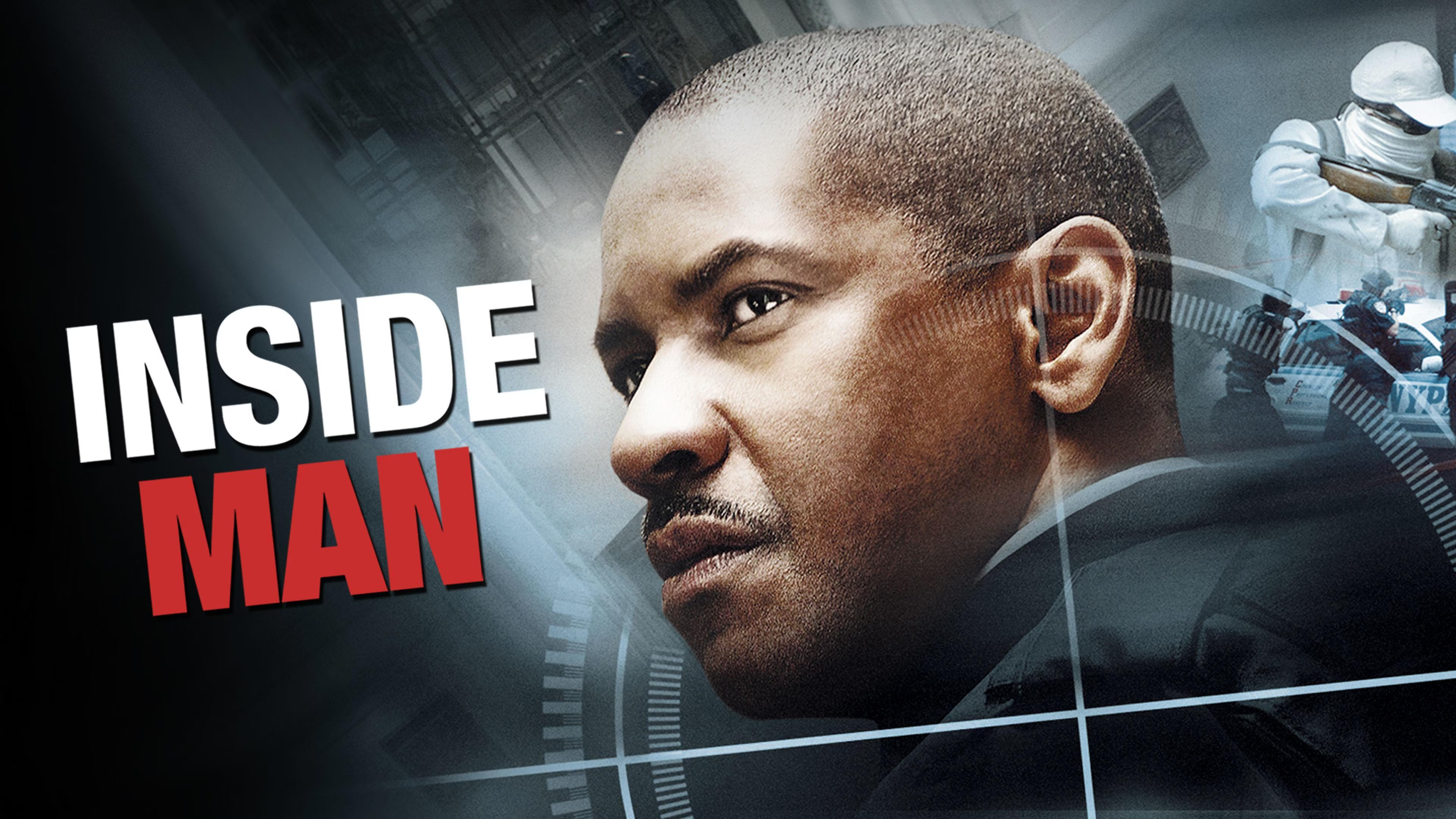Heat (1995)

Heat (1995) is a masterful crime drama directed by Michael Mann, renowned for its intense storytelling and complex characters. The film features an ensemble cast led by Al Pacino and Robert De Niro, whose performances elevate the narrative into a profound exploration of the lives of criminals and law enforcement. Set against the backdrop of Los Angeles, Heat intertwines themes of obsession, morality, and the personal costs of a life of crime.
The story revolves around Neil McCauley (De Niro), a seasoned professional thief who leads a crew of skilled criminals. His meticulous planning and expertise make him a formidable figure in the criminal underworld. On the other side of the law is Lieutenant Vincent Hanna (Pacino), a dedicated LAPD detective determined to bring McCauley and his crew to justice. The film intricately portrays the cat-and-mouse game between the two men, showcasing their respective obsessions—McCauley with his criminal enterprises and Hanna with his relentless pursuit of justice.

One of the film’s most notable aspects is its exploration of the personal lives of its characters. Both McCauley and Hanna are depicted as men driven by their passions, yet their commitments to their work come at a significant personal cost. McCauley’s relationships are strained, particularly with his girlfriend, played by Ashley Judd, while Hanna’s dedication to his job often alienates him from his wife, portrayed by Diane Venora. This duality adds depth to the characters, making them relatable despite their criminal pursuits.

The cinematography in Heat is striking, capturing the vibrant yet gritty essence of Los Angeles. Mann’s direction creates a palpable tension, particularly in the film’s action sequences, such as the iconic bank heist scene. The meticulous planning and execution of the robbery are depicted with stunning realism, showcasing Mann’s ability to blend action with character development. The subsequent shootout, set against the urban landscape, is one of the film’s most memorable moments, highlighting the film’s intense and immersive style.
The film’s score, composed by Elliot Goldenthal, further enhances its atmosphere, providing a haunting backdrop that complements the emotional weight of the story. The music underscores key moments, amplifying the tension and drawing viewers deeper into the narrative’s psychological complexities.

Heat is also notable for its exploration of themes such as loyalty, honor, and the blurred lines between good and evil. The film invites viewers to consider the motivations behind each character’s choices, challenging the traditional notion of hero versus villain. McCauley is portrayed as a man with a strict code of ethics, while Hanna, despite his role as a law enforcer, grapples with his own moral dilemmas. This complexity elevates the film beyond a standard crime drama, prompting deeper reflection on the nature of justice and the human condition.
The dialogue in Heat is sharp and memorable, particularly in the scenes where McCauley and Hanna confront each other. Their exchanges reveal not only their professional rivalry but also a mutual respect for each other’s skills. The film’s famous coffee shop scene, where the two characters discuss their lives and philosophies, serves as a pivotal moment, encapsulating the film’s thematic depth and character development.
In conclusion, Heat is a landmark film that skillfully blends action, drama, and character study into a compelling narrative. Through Michael Mann’s expert direction and the powerful performances of Al Pacino and Robert De Niro, the film explores the complexities of crime, obsession, and the human experience. Its intricate storytelling, memorable characters, and iconic scenes have solidified Heat as a classic in the crime genre, continuing to resonate with audiences and influence filmmakers for years to come.











